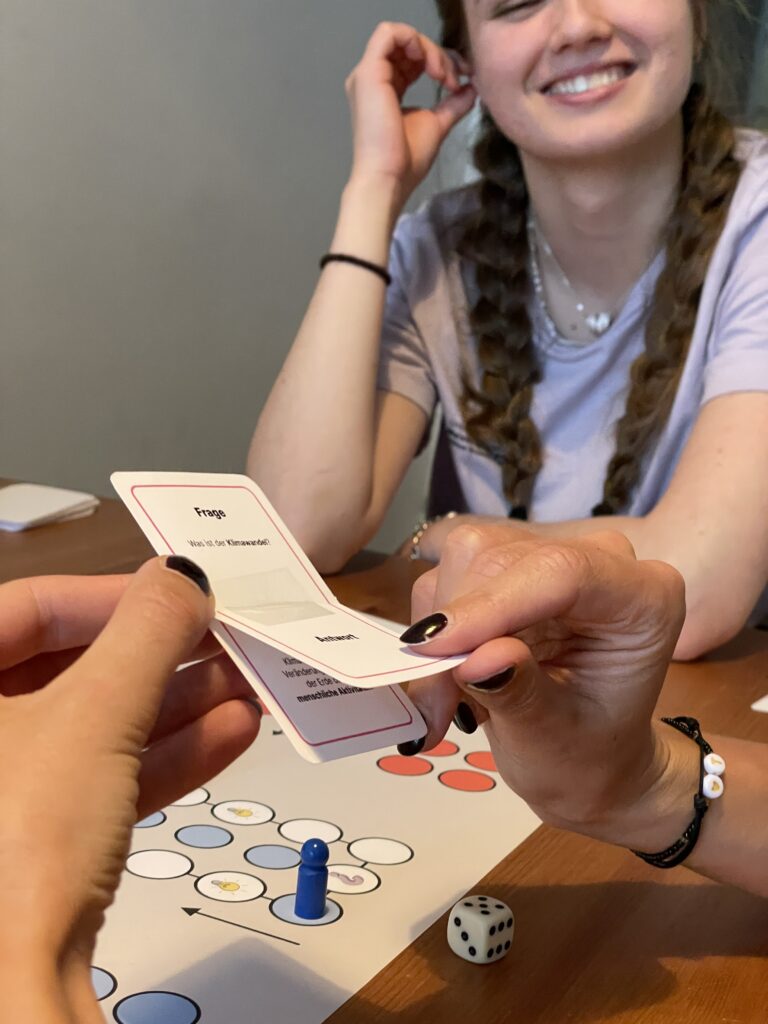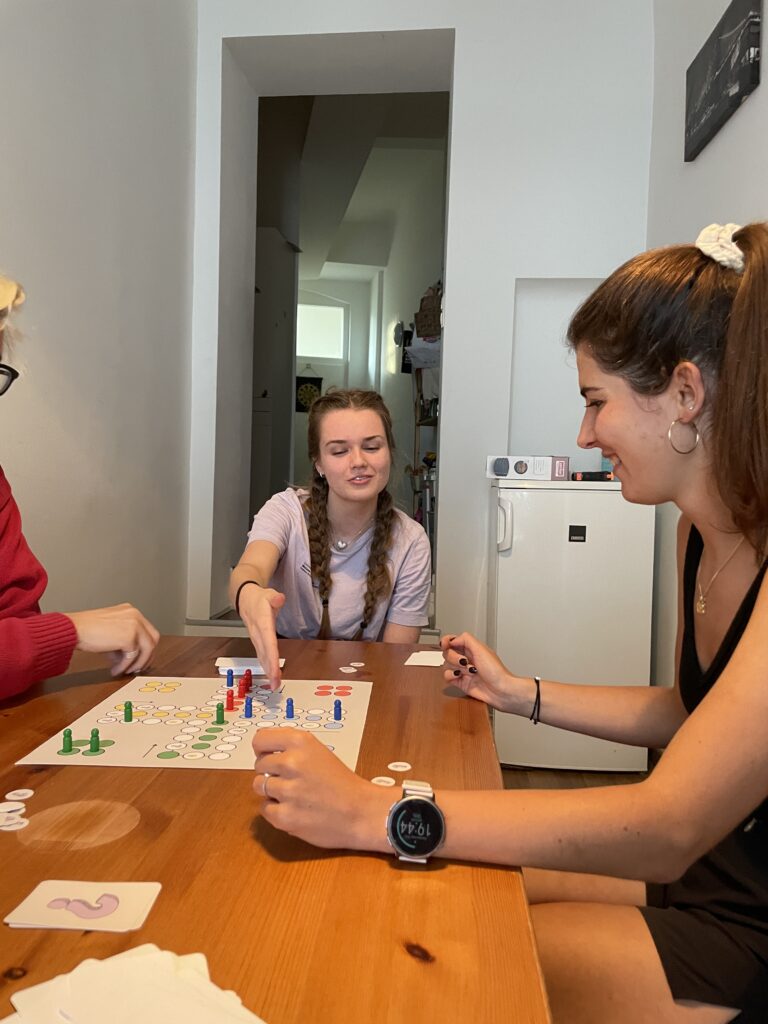Recently, I also conducted the first user testing for my adaptation of the classic board game „Mensch ärgere dich nicht“, infused with sustainability elements. The aim was to assess the game mechanics and gather feedback on how well it integrated sustainability concepts. Here’s a rundown of what I discovered during the testing session with three adult players.
What Didn’t Work
- Self Throw Dilemma: It wasn’t clear if they HAVE to move their piece for e.g. two spaces, if a card says so (cause it is meant to be a bonus for the player, not a penalty), if they would need to kick out their own player. Could they just accompany another player of their own or not execute the move at all? Or are they allowed to use another piece of their own to fulfill the moving?
- Integration of Energy-Saving Fields: The energy-saving fields weren’t integrated enough into the game, leading to questions about their role and impact.
- Incoherent Rewards: The distribution and significance of rewards based on the complexity of questions or actions on the „Good News“/“Bad News“ cards weren’t clear or consistent.
- Broad Questions: Some sustainability concepts/questions were perceived as overly broad, with lots of potentially correct answers.
Observations
- Rules Clarification: Many questions arose about the general rules of „Mensch ärgere dich nicht,“ especially when sustainability elements were introduced.
- Answer Ambiguity: Uncertainty arose when a potentially correct answer conflicted with the actual answer on the card.
- Penalty Questions: Players questioned what happens if they don’t have enough points but are required to give one away.





Positive Feedback
- Overall Enjoyment: Carla expressed (more than once) liking the game, indicating initial appeal despite the need for refinements.
- Clear Structure: Players appreciated the clear distinction between questions and actions that simply occur during gameplay.
- Humorous Element: The rule requiring players without enough points to take an extra round added a humorous twist that kept the game engaging.
- Enhanced Engagement: Max found the game more exciting than traditional „Mensch ärgere dich nicht,“ appreciating the sustainability angle.
Ideas for Improvement
- Example „Auto-in-die-Schule“ Card: There was the idea to really ask players if they drove to school with the car instead of just deciding for them and giving them sustainability points.
- Multiple Choice Answers: Introducing ABC answer choices for questions could enhance player engagement and clarity.
- More Penalties: Considering adding more penalties, e.g. forcing a player to sit out the next round.
- Excess Points Utilization: Allowing players to use excess environment points for strategic advantages could add depth to gameplay.
- Refining Energy-Saving Fields: Either integrate energy-saving fields more meaningfully and often or reconsider their inclusion.
- Mini-Games Addition: Incorporating mini-games like drawing a recycling icon could diversify gameplay and reinforce learning.
- Separation of Elements: Separate questions and good/bad news events into specific event fields or other designated spots to better utilize both.
This initial test provided valuable insights into the existing game mechanics. While there are refinements to be made, the positive reception and constructive feedback indicate potential for this game to successfully blend fun with learning about sustainable practices. Because of that and also because I think in a board game I might have more possibilities for adaptions and introducing more elements, I will most probably develop this game further rather that the card game GOPS.